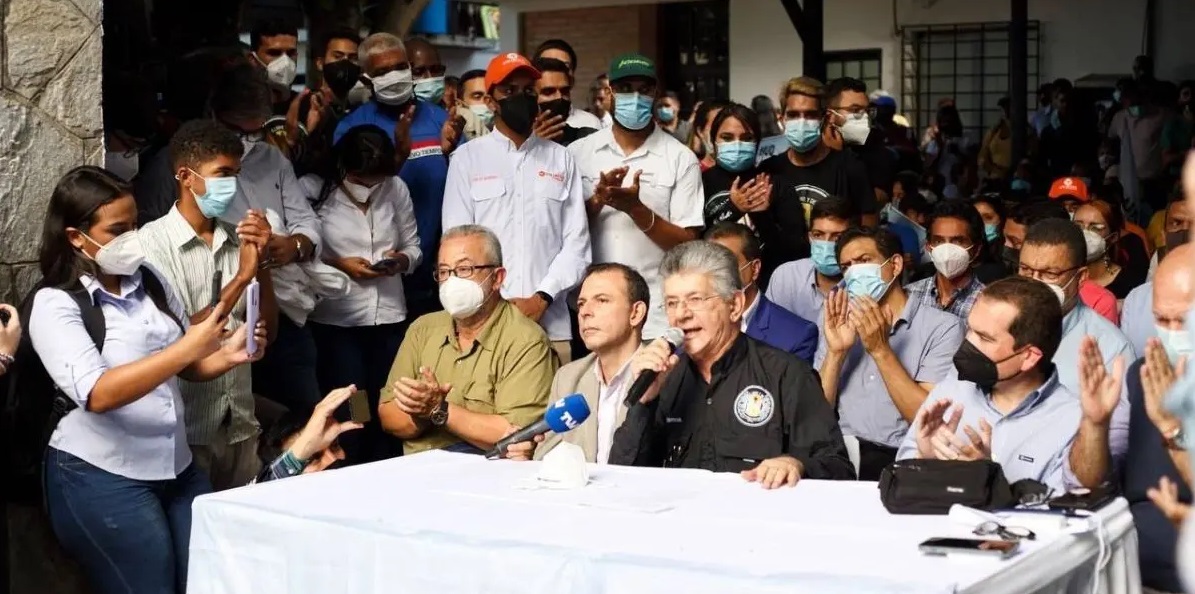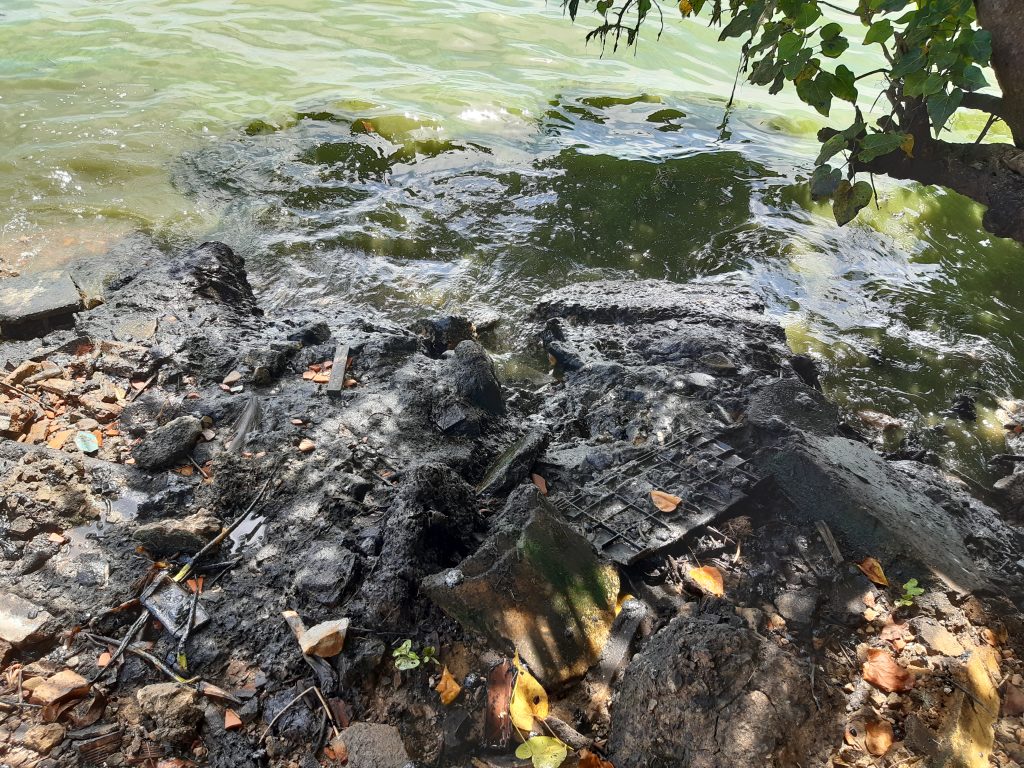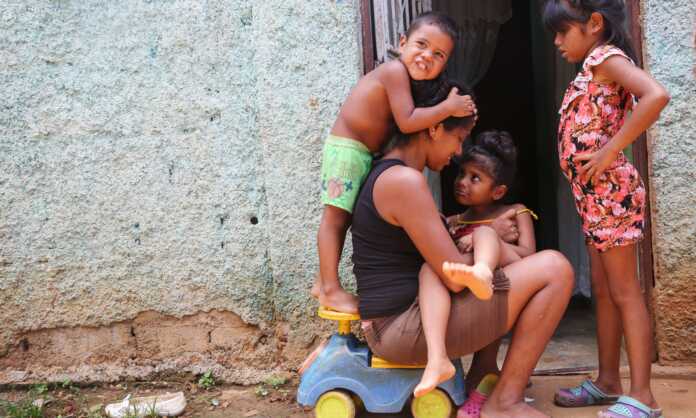The problem is that non-governmental organizations in Venezuela do not require a loyalty card. That is why Diosdado Cabello stigmatizes them on public TV. Chavismo criminalizes solidarity and now it wants to control it as if its activists belonged to Al-Qaeda. In a country that lost count on how many children die every year from diseases that regressed or disappeared during the Fourth Republic, the government of Nicolás Maduro wishes to have many organizations, such as Fe y Alegría, under its iron fist
Nicolás Maduro is on Jorge Rodríguez’s Twitter feed. Rodríguez posted his boss’ speech on Sunday 25 when they celebrated the 22nd anniversary of the call to a consultative referendum that paved the way to a constituent assembly tailored to Commander Hugo Chávez’s wishes. Showcasing his usual grammatical skills, Maduro said that true participatory democracy greatly advanced that year, making it possible to recover the model of prosperity, equality, and justice. He added that speaking of free public education seemed impossible 22 years ago because it didn’t exist: “Neoliberalism imposed an inhuman ideology that rejected free public education and health… For them [Those who didn’t consider themselves Chavistas], the idea was that no one had the right [to high quality and free education and health care]”.
By the way, until 2017, 11,466 children and teenagers had died in the country for different problems related to health and malnutrition. Among the diseases that caused this mortality were diphtheria, malaria, outbreaks of measles, tuberculosis, and the H1N1 virus. There were also alarming numbers of teenage mothers succumbing to pregnancy. Several of these diseases or epidemics had been eradicated or minimized in democracy but they have returned with Chavismo. From 2017 on, no more figures were released and complete silence reigned. A minister who expressed a socialist concern for the health of minors was swiftly removed from the post. Never again. An NGO that wanted to obtain measles figures had to resort to the Pan American Organization of Health because the Maduro government concealed them from the people it claims to protect.
That same NGO had to pay $160 a couple of weeks ago to bring a young cancer patient from Cumaná to Caracas with her mother: $80 for the woman and $80 for the girl, in a rental car. There was no other way to bring that girl so that she could receive proper and urgent treatment.
With the providence from the executive branch, the operation to save a girl will be analyzed and examined by those within the Government who dedicated their efforts to determine what is terrorism and what is not. Administrative Providence 001-2021 is a declaration of war on humanitarian organizations and the organizations assisting the most vulnerable Venezuelans. All under the so-called Unified Registry of Obliged Subjects before the National Office Against Organized Crime and Terrorism Financing, attached to the Ministry of the Interior, Justice, and Peace. Experts have deemed this providence clearly sub-legal but it has been already published in the Official Gazette.
More than 700 non-governmental organizations, funded by private or public entities from inside and outside the country, have voiced out their concerns in the face of this panorama: From now on, NGOs must disclose their list of donors and the amounts of each donation, with invoices and other documentation. However, there are confidentiality principles at the international level that until now had been respected in the Organic Law on the Protection of the Boys, Girls, and Teenagers (Lopnna) and other Venezuelan legal instruments and have preeminence over a providence. Hence its sub-legal status. Chavismo pretends to control the financial movements and the list of all beneficiaries of NGOs and other organizations under the presumption of crimes such as terrorism. In other words, the ruling Chavismo, who knows a lot about terrorism because it is its specialty, does not want – for example – that the money an organization uses to pay for the trip of a girl who suffers from cancer and her mother from Cumaná to Caracas, gets diverted to attack the government.
A human rights activist in condition of anonymity expressed that the organizations are generally reluctant to hand over their data because they have to protect their beneficiaries. “We are never surprised enough in this country. We will not stop until the providence is repealed. If they already mess with us in every way, what will it be like now?”
The activist refers to the raids of the offices of organizations such as Convite, Acción Solidaria, Prepara Familia, and Azul Positivo. On the latter, Amnesty International expressed on its website that the “detained members of the humanitarian NGO are prisoners of conscience.”
Confidentiality is a way to care for the victims. For example, in Pan-American instances of Human Rights, the names of the declarants, either witnesses or victims, are often kept undisclosed. The agencies are asked to keep the names to avoid retaliation at home. We must not forget that we are dealing with regimes that torture, repress, and murder.
Same with the reports that are sent to the United Nations. No names are given because it would sentence the affected to revictimization. The benefactors could also be persecuted, stigmatized, or blackmailed.
Just like Human Rights Watch, many other renowned institutions have set it straight for a long time: the government of Nicolás Maduro is a stubborn violator of Human Rights. Among other outrages, it has jailed opponents and banned them from running for public office. Political prisoners are used as wildcards in moments of need. HRW and other organizations that follow the situation in the country know that Venezuelan media in the country or abroad give visibility to the violations contradicting the policy of communicational hegemony. But harassment and attacks on the media are part of a broader campaign against civil society in Venezuela, warns Human Rights Watch in a recent report. Besides the media, Madurismo aims at anyone who defends human rights.
The Human Rights Center at Universidad Metropolitana has just released an extensive and detailed report. One of its conclusions is that the Maduro government has taken advantage of the health emergency and the state of alarm that granted unlimited powers to the President of the Republic to increase serious and generalized human rights violations”. The same Government that celebrates 22 years of an era of freedom, high-quality health care, and education for all.
In the country’s hospitals, the generous health policy of Nicolás Maduro provides children with a plain arepa for breakfast and unseasoned beans for lunch and dinner, regardless of the pathology of each patient. If you have cancer, you need a balanced diet, but the generous socialist state gives you the same meal every day, an arepa with no stuffing and tasteless beans. If the patient is nephrotic and has special nutritional needs, there will be no nutritional supplements for them.
The State should find support on the organizations that are always looking for ways to feed and assist the people it cannot attend to or who have been forgotten. But rather they are declared an enemy. International organizations rely on local NGOs. For example, how could the World Food Programme reach its beneficiaries without the support of Fé y Alegría?
In the country where more health workers have died from Covid-19 proportionately, only 30% of health personnel have been vaccinated so far. Venezuelan NGO Médicos Unidos estimates that 400 to 500 thousand people work in the health sector, be they doctors, nurses, assistants, etc. Of course, all of the members of parliament elected last December were properly vaccinated. On the other hand, kidney patients are still waiting.
Nicolás Maduro celebrated that Sunday in 1999 when Chavismo triumphed with the promise of punishing the old politicians and the hope for high-quality free healthcare for everyone. Where are all those promises, Nicólas? Where are they, Jorge? Where are they, Diosdado?
“With this providence, the civic space and freedom of association are further restricted”, pointed out another human rights activist who also protected his name. The situation calls for a statement by the UN High Commissioner for Human Rights.
Translated by José Rafael Medina




